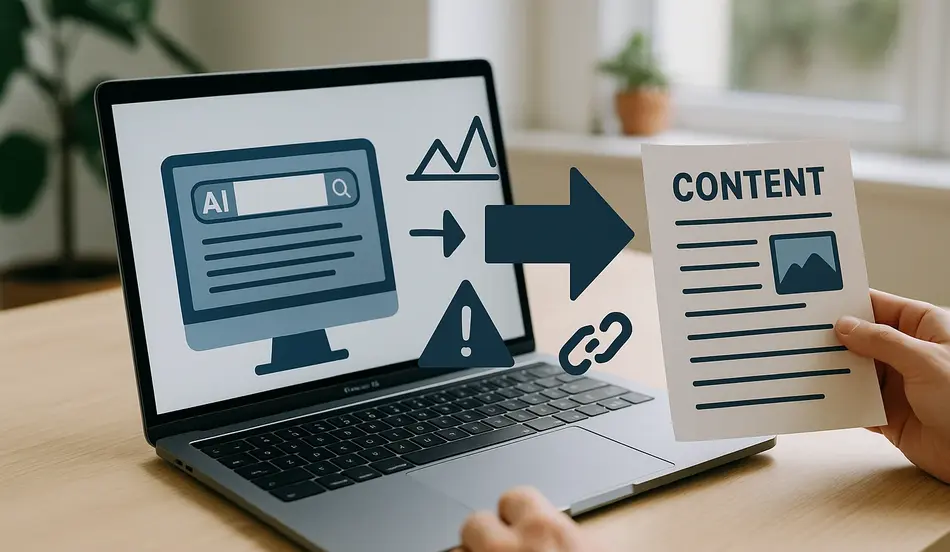The digital landscape is undergoing a seismic shift as artificial intelligence (AI) search engines redefine how users discover and interact with content. In 2025, the battle of AI Search Engines vs Publisher Content 2025 is at the forefront of industry discussions, with publishers scrambling to adapt to new algorithms, changing user behaviors, and evolving monetization models. This article explores the disruptive impact of AI-powered search engines on publisher content, strategies for adaptation, and what the future holds for digital media.
How AI Search Engines Work in 2025
AI search engines have evolved far beyond simple keyword matching. Today, they leverage natural language processing (NLP), machine learning, and user intent modeling to deliver highly personalized results. These engines analyze vast datasets, user interactions, and contextual signals to surface content that best matches a user’s needs.
Personalization and User Intent
Modern AI search engines prioritize user intent over exact keyword matches. This means that content must be contextually relevant, authoritative, and engaging to rank well. Publishers are now optimizing for topics and semantic relevance rather than just keywords.
Featured Snippets and Zero-Click Searches
With the rise of featured snippets and zero-click searches, users often find answers directly on the search results page. This trend reduces click-through rates for publishers, challenging traditional traffic and revenue models.
The Impact on Publisher Content
The disruption caused by AI search engines is profound. Publishers face declining organic traffic, increased competition from AI-generated content, and the need to invest in new content strategies.
Declining Organic Traffic
As AI search engines provide more direct answers, publishers see a drop in website visits. According to Nieman Lab, many media outlets are experiencing double-digit declines in organic search traffic in 2025.
Rise of AI-Generated Content
AI tools can now generate news summaries, product reviews, and even in-depth analysis. This increases competition and forces publishers to differentiate through unique insights, investigative reporting, and multimedia storytelling.
Monetization Challenges
With fewer visitors, traditional ad revenue models are under pressure. Publishers are exploring subscriptions, memberships, and sponsored content to diversify income streams.
🧠 Explore AI-Driven Digital Media Roles on WhatJobs
The rise of AI search engines is transforming how content is created, discovered, and monetized.
Discover cutting-edge roles in Digital Publishing, SEO Strategy, Content Automation, and AI-Powered Marketing—industries evolving rapidly in 2025.
WhatJobs helps you stay competitive by connecting you with future-ready careers at the intersection of media, technology, and AI.
👉 Browse AI and digital media jobs now — and shape the future of content.Strategies for Publishers to Adapt
To thrive in the era of AI Search Engines vs Publisher Content 2025, publishers must embrace innovation and agility.
Focus on E-E-A-T (Experience, Expertise, Authoritativeness, Trustworthiness)
Google and other AI search engines reward content that demonstrates E-E-A-T. Publishers should highlight author credentials, cite reputable sources, and provide original analysis.
Invest in Multimedia and Interactive Content
Videos, podcasts, infographics, and interactive tools engage users and increase time on site, signaling value to AI search engines.
Build Direct Relationships with Audiences
Email newsletters, podcasts, and social communities help publishers reduce reliance on search traffic and foster loyal audiences.
Case Studies: Publishers Responding to AI Disruption
Leading publishers are experimenting with new formats and business models. The Reuters Institute reports that some outlets are launching AI-powered newsletters, while others are investing in investigative journalism and exclusive content.
Innovative Content Formats
From interactive explainers to data-driven storytelling, publishers are finding creative ways to stand out in AI-driven search results.
Collaborations and Partnerships
Media organizations are partnering with tech companies and academic institutions to develop ethical AI tools and share best practices.
Future Outlook: What’s Next for Publishers?
The future of AI Search Engines vs Publisher Content 2025 will be shaped by ongoing technological advancements, regulatory changes, and shifting consumer expectations. Publishers who invest in quality, innovation, and audience engagement will be best positioned to succeed.
Frequently Asked Questions about AI Search Engines vs Publisher Content 2025
Q1: How are AI search engines changing publisher content in 2025?
A1: AI search engines are prioritizing user intent, delivering direct answers, and increasing competition with AI-generated content, forcing publishers to adapt their strategies.
Q2: What strategies can publishers use to compete with AI search engines in 2025?
A2: Publishers should focus on E-E-A-T, invest in multimedia content, leverage internal linking, and build direct relationships with their audiences.
Q3: What are the main challenges for publishers in the AI Search Engines vs Publisher Content 2025 landscape?
A3: The main challenges include declining organic traffic, increased competition from AI-generated content, and the need to diversify revenue streams.
Q4: How can job seekers and employers benefit from understanding AI Search Engines vs Publisher Content 2025?
A4: Job seekers can identify emerging skills and roles, while employers can adapt hiring strategies to stay competitive in the evolving digital landscape.
Conclusion
The disruption caused by AI search engines is both a challenge and an opportunity for publishers. By embracing innovation, focusing on quality, and building direct audience relationships, publishers can navigate the evolving landscape of AI Search Engines vs Publisher Content 2025 and thrive in the years ahead.




